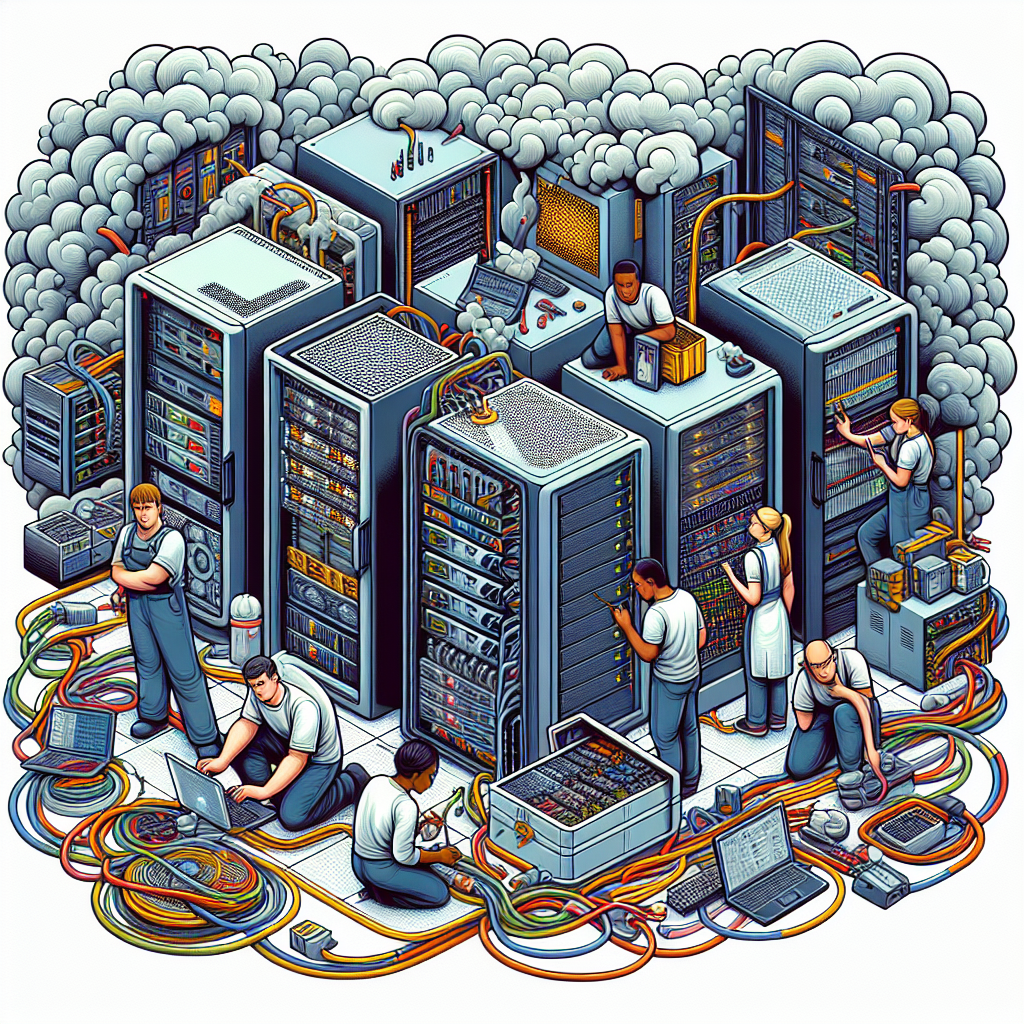Fix today. Protect forever.
Secure your devices with the #1 malware removal and protection software
Data centers are the backbone of modern technology, housing the hardware and infrastructure that support the storage, processing, and distribution of data. However, like any other complex system, data center hardware can experience failures that can disrupt operations and lead to data loss. When these failures occur, it is crucial for data center administrators to quickly troubleshoot and recover from them to minimize downtime and prevent further damage.
There are several common hardware failures that can occur in a data center, including power supply failures, CPU overheating, memory errors, and disk drive failures. When a hardware failure occurs, the first step is to identify the source of the problem. This can usually be done by monitoring system logs and error messages, as well as conducting diagnostic tests on the affected hardware.
Once the source of the failure has been identified, the next step is to troubleshoot the issue and determine the best course of action for recovery. In some cases, the problem may be resolved by simply restarting the affected hardware or replacing a faulty component. In other cases, more extensive troubleshooting may be required, such as updating firmware or drivers, reconfiguring hardware settings, or performing a system restore.
If troubleshooting efforts are unsuccessful, data center administrators may need to initiate a recovery plan to restore operations and prevent data loss. This may involve implementing disaster recovery strategies, such as failover systems or data replication, to ensure that critical data and applications are still accessible in the event of a hardware failure.
In some cases, data center administrators may need to engage with hardware vendors or third-party service providers to repair or replace faulty hardware components. It is important to have service level agreements in place with these vendors to ensure prompt response times and minimize downtime.
Preventive maintenance is also key to minimizing the risk of hardware failures in a data center. Regularly monitoring hardware performance, conducting routine maintenance tasks, and implementing proper cooling and power management strategies can help prevent hardware failures before they occur.
In conclusion, data center hardware failures can be disruptive and costly, but with proper troubleshooting and recovery strategies in place, data center administrators can quickly resolve issues and minimize downtime. By implementing preventive maintenance practices and having a solid disaster recovery plan in place, data center administrators can ensure that their hardware infrastructure remains reliable and resilient in the face of potential failures.
Fix today. Protect forever.
Secure your devices with the #1 malware removal and protection software

Leave a Reply
You must be logged in to post a comment.